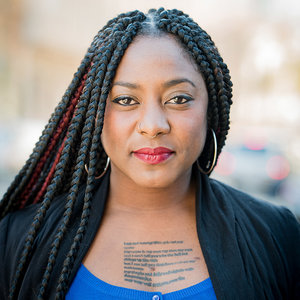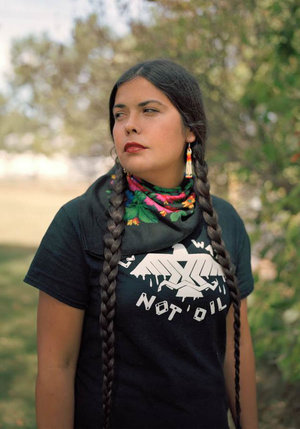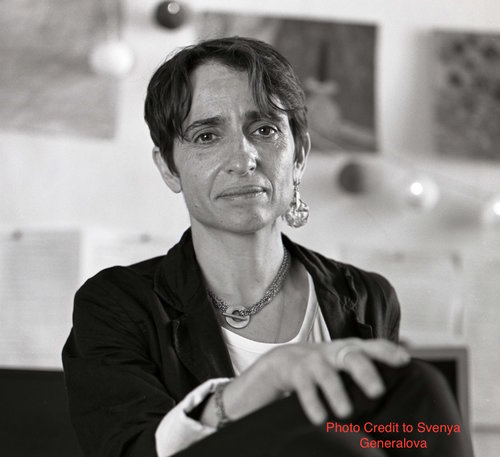The 2017 Othering & Belonging Conference was held April 30–May 2, 2017 in Oakland, California. Explore these phenomenal conversations on advancing belonging, ranging from culture and arts strategies to academic and policy research to power-building grassroots activism work to narratives that build a more inclusive "We."
Some of our 2017 Speakers
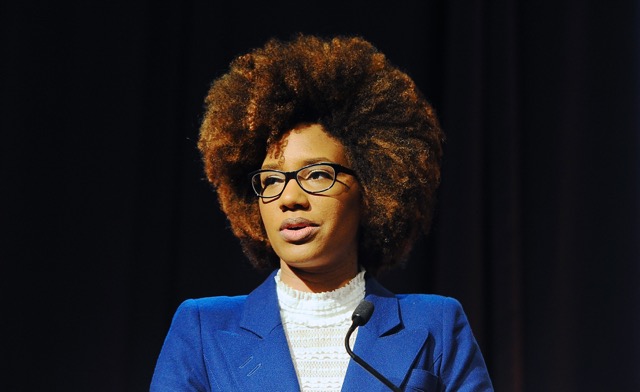
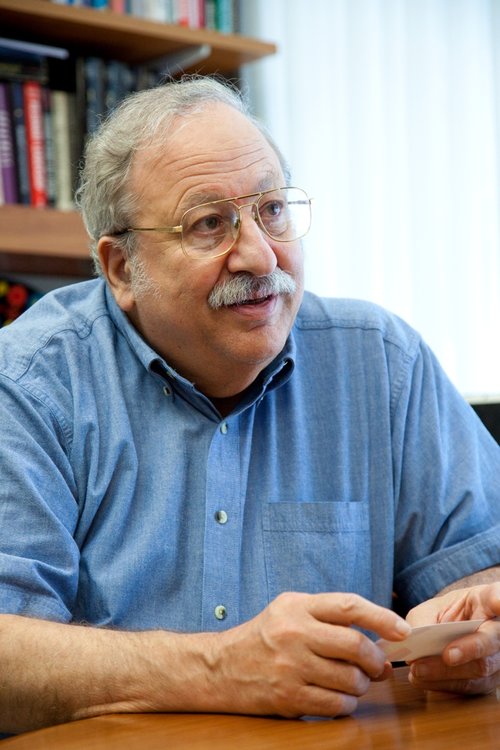
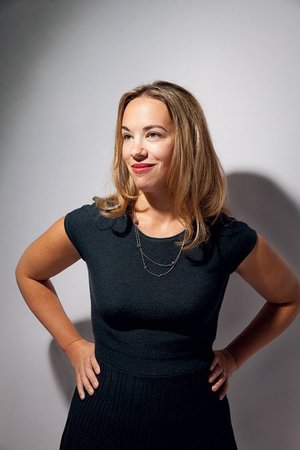
Sarah Kendzior
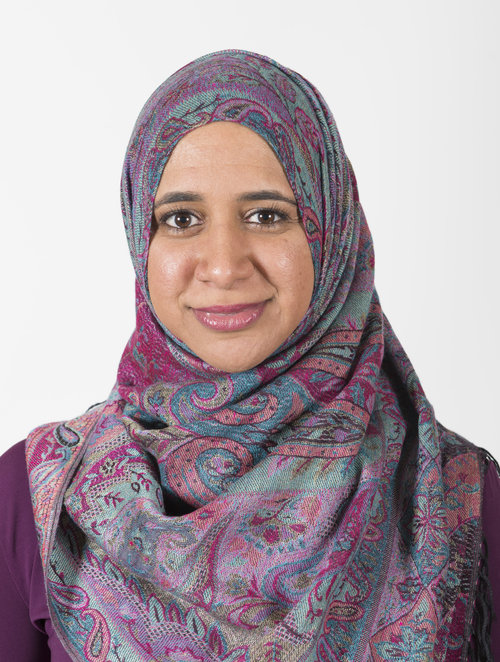
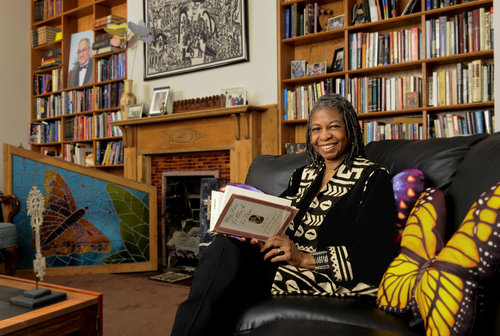
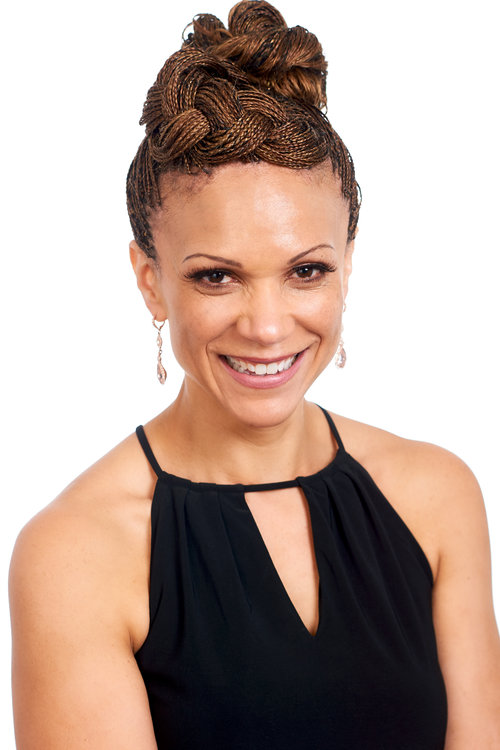
Melissa Harris-Perry
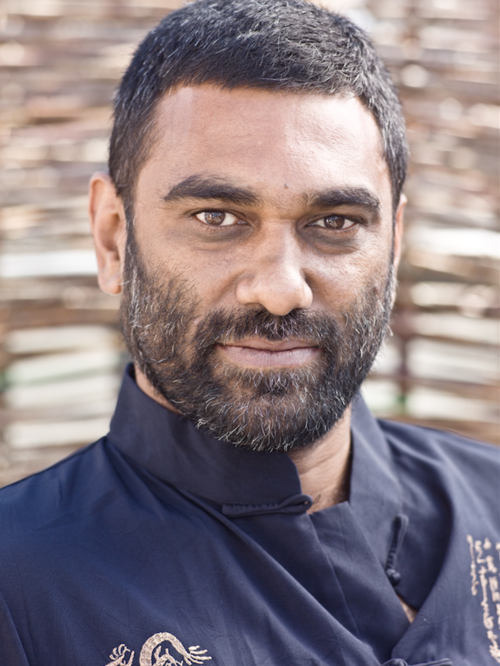
Kumi Naidoo
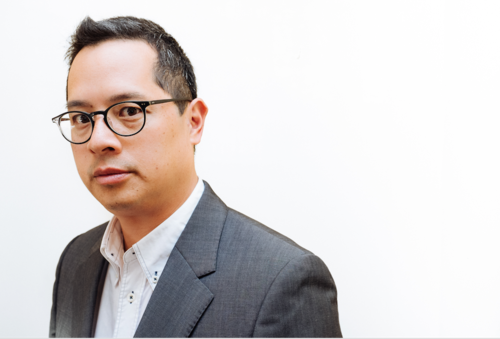
Jeff Chang
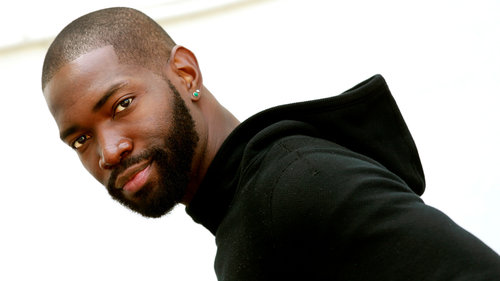
Tarell Alvin McCraney

O&B 2017 Agenda
Below is our abbreviated agenda from the 2017 Othering & Belonging Conference. Download the entire 2017 conference program here for a detailed look at the speakers, sessions, and supporters.
Sunday, April 30
1:00 PM - Registration Opens
2:00 PM - Guided Meditation, with Amana Brembry Johnson
1:30-3:00 PM - Interactive Art Installments
Rolling Counterpoint: A Community Conversation Project
Join artist Taro Hattori and share tea and conversation in his mobile teahouse, part of the Rolling Counterpoint exhibit. Conceived as a space designed to foster public dialogue and exchange about division and belonging in contemporary society, Rolling Counterpoint consists of two physical structures: one stationary space installed outdoors at the Montalvo Arts Center in Saratoga, California and one mobile teahouse that traveling to destinations throughout the Bay Area in 2017. Hattori invites visitors to add their voices to a growing collection of perspectives addressing such wide-ranging issues and social concerns as immigration, social exclusion, gentrification, homelessness, and income inequality. The artist seeks to use his roving teahouse as a means of connecting and bridging diverse and often disconnected communities, bringing them together around this shared conversation. In a special collaboration with the Othering & Belonging Conference, Hattori will be bringing Rolling Counterpoint to the conference for 2.5 days. Come participate and engage with artist Taro Hittori and his Rolling Counterpoint exhibit starting April 30 at 2:30 pm in the Atrium of the Oakland Marriott.
Frames for Life, Liberation, and Belonging: Artist Evan Bissell is producing a custom, interactive installation for the Othering & Belonging Conference that highlights narrative frames employed by visionary activists, thinkers, writers, and other storytellers across place and time. Join Evan in the Grand Foyer starting Sunday to add to the evolving wall installation; an archive of stories, actions and ideas for life, liberation and belonging. The final work will be catalogued and represented digitally. Frames for Life, Liberation, and Belonging
3:00 PM - Conference Program Begins: Excerpts from "Illuminate," with Destiny Arts Junior Company
3:15 PM - Conference Opening with Dr. Shakti Butler, Emcee
3:30 PM - Welcome by john a. powell, Director of the Haas Institute for a Fair and Inclusive Society at UC Berkeley
3:45 PM - Art as Transformation: A Lens for Social Change with La Toya Ruby Frazier, Visual Artist, Macarthur and TED Fellow
Each day, we’re bombarded by images: on billboards, on screens, in schools and in our bedrooms. And these images, largely corporate in origin, carry power—power to shape, control, and constrain—even when they offer a fantasy, or an outright lie. That’s why, as LaToya Ruby Frazier argues, photography is a battleground of representation. We cannot control the material circumstances of our birth, our families or our economic circumstances. But in order to change society—to seed real change and cultural transformation, especially for the marginalized and the forgotten—we must change the picture we have of ourselves and our communities.
In this talk, Frazier discusses how she has used photography to fight injustice—poverty, healthcare and gender inequality, environmental contamination, racism, and more—and create a more representative self-portrait. Drawing from her book The Notion of Family as well as from works of art by Frederick Douglass, August Sander, Julia Margaret Cameron, and Langston Hughes, she relates her conscious approach to photography, opens up more authentic ways to talk about family, inheritance, and place, and celebrates the inspirational, transformative power of images.
4:15 pm - Beyond Empathy: Arts, Culture, and Imagination, with Jeff Chang, Institute for Diversity in the Arts at Stanford, author and scholar on culture and hip hop. Racial crisis recurs in each U.S. generation. Even as the nation undergoes dramatic demographic change, we seem unable to extricate ourselves from the cycle that leads us back toward another crisis. The culture wars have become a permanent feature of our political landscape. How do the culture wars reproduce and exploit inequity and resegregation? What role can the arts and artists play in moving us out of the crisis cycle? How do we begin to imagine our way into transformative justice and freedom for all?
4:45 pm - Keynote: "Theatre of Be Longing" with Tarell Alvin McCraney, Oscar-winning playwright, chair of Yale’s playwriting program
What do the classics teach us about our humanity? What do we today have to teach the classics? The young people born today, those turning 15 yesterday, statistics say have never seen a live performance. Even fewer have seen a live performance in the theater or a play. And fewer have seen a play that reflected the life they currently live . How do we create theatre as cultural belonging? How do we create a space where young audiences feel as though they can Be? And what is the type of theater we are Longing for?
5:15 PM - Q&A with Keynote Speakers
6:00 PM - Reception & Book Signing
Reception featuring East Bay Center of the Arts, Richmond Jazz Collective, Book signing by LaToya Ruby Frazier & Jeff Chang
7:15 - 8:30 pm- Keynote: A Public Dialogue on Inclusive and Sustainable Development, with Jeffrey Sachs, john powell and Kumi Naidoo. Following a presentation by Professor Sachs, he will be joined in a public dialogue with john a. powell, Director of UC Berkeley's Haas Institute for a Fair and Inclusive Society and Kumi Naidoo, formerly Executive Director of Greenpeace International and now with AfricansRising. Naidoo is in town from South Africa to speak at the Othering & Belonging Conference. Opening remarks will be made by Hilary Hoynes, Professor of Public Policy and Economics and holder of the Haas Distinguished Chair in Economic Disparities. Sachs will do a book-signing following the event. His most recent book is Building the New American Economy: Smart, Fair, and Sustainable.
8:30 pm - Book signing by Jeffrey Sachs
MONDAY, MAY 1
7:00 AM - Yoga, with Rasheed Shabazz
7:30 AM - Registration and Breakfast Open
8:00 AM - Guided Meditation with Amana Brembry Johnson
9:15 am - Welcome Remarks, with Shakti Butler, Emcee & Facilitator, and Na’ilah Nasir, Vice Chancellor of Equity and Inclusion, UC Berkeley
9:30 AM - Keynote: "We the People: Practicing Belonging in a Period of Deep Anxiety" with john a. powell, Director, Haas Institute for a Fair and Inclusive Society and Berkeley Law Professor.
In the aftermath of the 2016 election, many of our foundational values have been called into question. From democracy and human dignity to equality and individual freedom, a collective belief in the founding values and systems of our country has faded from view, leaving many wondering, Is resistance enough? And although we may feel energized by the surge of political activism seen in response to the new, uncharted, and hostile territory we find ourselves in, how has the momentum from our progressive actions provoked an equal and opposite reaction from those who insist we do not belong? Yes, we must refuse the hate directed toward the "have-nots" in society; yes, we must resist all attempts to institutionalize hate into practice and policy. But at the end of the day, what does it mean to practice not only resistance but also an ethics of care—not just for one group or country but a care for all as one global society?
9:50 AM - Keynote, "The Surreal Present in Historical Context: Another Perspective on Othering & Belonging,"with Doug McAdam, Professor of Sociology at Stanford University
The surreal onset of the new administration, to say nothing of Donald Trump’s oversize presence, has so focused our attention in the moment, that we’re in danger of losing critically important historical perspective. Trump’s rhetoric and behavior are so extreme that the tendency is to see him and the divisions he embodies as something wholly new in American politics. They are not. Instead, Trump is only the most extreme expression of a brand of exclusionary politics practiced ever more zealously by the Republican Party since its origins in the 1960s. We must understand this fundamental continuity if we are to successfully challenge the rash of exclusionary policies proliferating every day. To see Donald Trump as the singular source of these dangerous and illiberal policies would be both historically inaccurate and a strategic mistake.
But even as we mobilize to confront the threat of Donald Trump’s vision of a divided, exclusionary America, we must confront the sources of division within our own ranks. The good news is those who are appalled by and repudiate Trump’s divisive, anti-democratic vision for America greatly outnumber those who embrace it. The bad news is, longstanding divisions within our ranks have too often muted the force of our numbers. If we’re to resist the ascendant forces of division and exclusion, we must not other each other. While acknowledging and honoring the differences among us, we must resolve to full embrace our diversity and grant unqualified “belonging” to all who reject Trump’s image of a divided, exclusionary America.
10:10 AM - Dialogue with john powell & Doug McAdam
10:30 AM Break & Book Signing Doug McAdam
10:45 AM - Remarks Christopher Oechsli, President & CEO, The Atlantic Philanthropies
11:00 AM- Keynote Panel: Barriers to Belonging: Expulsions, Right-Wing Populism and the Global Struggle for Democracy, with Saskia Sassen, Professor of Sociology, Columbia University; Kumi Naidoo, AfricansRising and former Executive Director of Greenpeace International; moderated by Tarso Luís Ramos, Executive Director, Political Research Associates
We have been living during a period of rapid social, political and economic change over the last few decades. Widespread economic precarity and wealth inequality paired with persistent systemic othering and growing demands for inclusion by those who are excluded from full participation and belonging, has created a ripe opening for the global rise of right-wing populism and authoritarian regimes. To exacerbate the situation, there is growing recognition that we live on a planet that is convulsing from human-induced climate change.
In this discussion we will explore the interrelationship among political crisis and the rise of populist movements as it relates to shifts in the economy—expanded globalization and migration, technological changes, erosion of redistributive tax policies, and unsustainable consumption—with increased xenophobia and anxiety of the other, and growing distrust of government and its consequences.
How do authoritarian leaders spur the rise of right-wing populist movements and in particular, the movements sweeping the globe today? What will it take to challenge authoritarian rule and extreme othering while also reclaiming democracy and substantive belonging? What strategies are available to us to disrupt the underlying notion that domination is a prerequisite for success? What will be required of our movements and movement leaders to meet the challenges of our time?
12:15 - 1:30 PM - Lunch Break
1:30 - 3:00 PM - CONCURRENT BREAKOUT SESSIONS
- Design for All: Creative Placemaking and Inclusive Space, with Miriam Chion, Association of Bay Area Governments; David John Attyah, Public Artist and Professor of Studio Art, Glendale Community College; Roberto Bedoya, City of Oakland Cultural Affairs Manager; Victor Pineda, President, World Enabled and Senior Fellow, Haas Institute
Belonging is physical. Belonging is social. Belonging is creative. To counteract displacement, planners have often applied the discourse of creative placemaking. However, this discourse overvalues dominant physical forms like live-work spaces, cultural districts, or green landscapes, providing an illusion of the collective. These forms give an incomplete picture of engaged placemaking. Before places can invite engagement - we must understand the collective needs, histories and desires. Why did the community ask for a mural or a pupuseria? How are people with disabilities included? We must consider the ingredients of the ”vibrant street” and carefully evaluate the social processes to create dynamic places. This session examines ways the arts and cultural production fit into the process of creative placemaking and offers strategies for disrupting displacement and generating an ethos of belonging for all that is so pivotal to public life.
Refugees, Borders, & Placelessness, with Saskia Sassen, Columbia University; Nunu Kidane, Priority African Network; Leena Odeh, organizer; Abraham Ramirez, Ph.D Candidate at UC Berkeley; and Nadia Barhoum, Moderator.
The world is experiencing the greatest displacement of peoples since WWII, with 65 million people being uprooted and displaced from their homes, including 21 million refugees who have fled their homelands in search of safety and protection. How do we understand this human tragedy in the context of institutional —political and financial—crises and as outcomes of the structure of the global economy?
In this workshop, we’ll explore the hyper-regulation of people and borders, especially in contrast to how regulation and policies are structured to easily move capital across borders. How are exclusionary policies increasing state militarization and securitization, xenophobia, and shrinking governmental social programs while continuing to push impacted communities to the extreme margins of society? Additionally, this session will explore how impacted communities and social movements have begun to imagine and create alternatives and how governments (local and national) and institutions have responded to such demands in order to create spaces of belonging with full respect for human dignity and democracy.
- Strategic Narrative and Practices for Belonging, with Ian Haney Lopez, Berkeley Law; Sabrina Smith, California Calls; Gerald Lenoir and Olivia Araiza, Haas Institute for a Fair and Inclusive Society; Troy Jackson; Ifeoma Ike, NYC Young Men’s Initiative (Office of the Mayor)
In the final years of the Obama era there was a cross movement conversation about the need for greater alignment and cohesion--our movements suffered from silo-ing and perhaps were narrowly fixated in distinct policy pathways towards change. The conceptual underpinnings of othering and belonging helped advance these conversations towards a shared analysis. We were discussing “dog-whistle politics”—the strategic use of racism (veiled racist tropes) that sustains the dominant narrative and power structures that have propelled conservative agendas and elite’s control over government for decades.
The need for a “meta-narrative” was proposed as a strategy, a story that at once encapsulated an overarching analysis of these forces and powers, named toxic inequality and government as critical pieces to address, and pointed to an aspirational vision for transforming our country. The meta-narrative strategy did not stop at a coalesced communications effort but pointed to the need for alignment to address a set of implications and priorities. In California, a broad cross section of the movement landscape set out to build on this proposition. Like leaders of states and corporations around the world, movement consolidation has been accelerated with the election of Trump as the president of the United States.
What will this consolidation lead to? Just greater cohesion among resistance efforts or alignment that creates The Movement that will fundamentally transform who we become? A strategic narrative is a necessary approach and today’s crises underscore a set of priorities that demand our full attention and speed.
- Revealing and Resisting Global Demagoguery, with Larry Rosenthal, Berkeley Center for Right-Wing Studies; Sarah Kendzior, journalist and commentator on US politics; and Stephen Menendian, Haas Institute for a Fair and Inclusive Society
Across the globe, a rising crop of political leaders appealing to ethnic, religious and nationalistic identities has emerging, and achieved a stunning series of political victories. Although Donald Trump’s Electoral College victory and the Brexit vote are merely two auspicious instances, demagogues are winning across the world. Turkish leader Recep Erdogan carefully organized against Kurdish separatists after a parliamentary defeat last year to rebuild his political base, which he has since consolidated after a recent coup attempt. In India, Prime Minister Narendra Modi rose to power as an economic reformer, but has stoked Hindu nationalism to reinforce his support and expand his political power.
These leaders are not simply nationalistic, misogynistic, and xenophobic, appealing to the fear of the other, they are also tend to be autocratic, breaking norms of conduct if not rule of law. We envision a workshop focused on revealing and resisting rising demagogic forces in the United States and beyond. The goal for the panel is to bring together scholars, advocates, and policymakers who can provide complementary perspectives on the global issue of autocratic demagogues, and what we can do about it.
- Youth Advance Belonging: Creating Another World That is Possible, with Clarence Ford, Safe Return, Underground Scholars; Hatem Mohtaseb, Arab Youth Collective, San Diego; Ruben Elias Canedo, UC Berkeley; Kristian Kim, Undergraduate Workers Union; Tania Pulido, Community Health Coordinator
“Another world is not only possible, she is on her way. On a quiet day, I can hear her breathing.” Arundhati Roy
This panel brings together youth leaders from different movements working to challenge structures, systems, and institutions that historically and systematically exclude marginalized communities. The panel will explore how youth have been able to identify the failures of these inherited structures, systems and institutions in ways that have been generative and created space to build practices and spaces of belonging. How are they moving towards the world they want to see? What are the strengths and challenges of engaging in collective work intergenerationally in pursuit of that world?
- Transforming Public Health: Building Belonging, with Aletha Maybank, MD, MPH, Deputy Commissioner and Director, Center for Health Equity, NYC Department of Health and Mental Hygiene; Rachel Morello-Frosch, UC Berkeley; Sandra Witt, The California Endowment; Lili Farhang, Human Impact Partners
The field of public health is going through an awakening. After years of struggling unsuccessfully to close “health disparities,” a new movement is taking root: Public health leaders from around the country are more squarely focused on racism and othering as forms of oppression at the root of poor health. What this means in practice is that public health—who has historically been complicit in creating and reinforcing the inequitable power dynamics and public policy that harm health—is willing to take on the hard issues it has shied away from in the past, such as sharing decision-making and power with communities, working on issues such as gentrification and displacement, incarceration, immigration, and using our bully pulpit to hold other government agencies accountable to their actions.
More and more, there is a vanguard of public health agencies that are building their own capacity and changing internal practices to advance equity and strategic risk-taking, and also building strategic alliances and relationships with community organizers and social justice movements to help magnify their power to advance health, equity, and justice. The country’s more than 2,500 health departments have significant work to do advance health equity, but many of us are using our expertise and power to walk a new road together.
- Strategic Questioning, with Shakti Butler, World Trust Educational Services
Strategic questioning is a technique designed to create knowledge that awakens possibilities of change. It is a process that empowers new questions, releases blocks to new ideas, facilitates people’s own responses to change, and creates answers that may not be immediately know but may emerge. Using case studies of clashes and conflicts within the current society and our places of work and organization, we apply a systemic and structural lens to encourage a process for addressing “issues” in ways that may be considered from multiple perspectives and analyses. A strategic question opens both of us to another point of view. It invites our ideas to shift and take into account of new information and new possibilities. And it invokes that special creativity that can forge fresh strategies for resolving challenges.
3:00-3:30 PM - Break & Book Signing, with john a. powell & Saskia Sassen
3:30 PM - In Defense of the Truth - with Masha Gessen and Sarah Kendzior, authors and journalists. The current political landscape has made clear the powerful role that the press can play in upholding democracy. Amid daily attacks on the legitimacy of the press, Trump and his administration have limited the press’s access to government and show overt contempt for the democratic norm and role of a free press. The President uses Twitter to manipulate the public discourse with lies and misinformation. For a country that has taken free press for granted, experiencing authoritarian disregard for journalism and truth itself is unsettling. Two journalists and scholars with deep experience observing and reporting under authoritarian leaders will share insights and perspective to help us interpret and contextualize the erosion of the truth and the responsibility of a free, independent, and democratic press.
4:15 PM - Keynote Poem: "Poems Because Poems Work," by Chinaka Hodge, poet and playwright. Chinaka Hodge reads new and commissioned work, forefronting politics, home and cultural remembrance
4:30 PM - Keynote Panel, "Participation, Politics, and the Progressive Project: Where Do We Go From Here?" with Taeku Lee, Professor of Political Science/Law at UC Berkeley and Associate Director for the Haas Institute for a Fair and Inclusive Society; Lisa García Bedolla, UC Berkeley; Marshall Ganz, Harvard University; Dr. Ravi K. Perry, Virgina Common Wealth University
The elections of 2008 and 2016 were pivotal, not just in terms of which candidates and issues won the day, but also in terms of which voters were mobilized and how they were engaged. Understanding the demographic changes, public narratives, and campaign strategies that led us to Obama and Trump is critical to building an electorate across racial, class, gender, generational, and geographic lines moving forward. How can research and thought leadership help us change the narrative for 2018 and beyond? What to do we need to know about where we are now to move forward by looking backward? Data can help with that. Race, Space, Class—making sense of divisions. Opportunities—changing demographics, how we think of 2018, how can research help with this? What are policy implications?
Focus would be to exchange perspectives on where 2008 and 2016 leaves progressive, cross-racial projects to build power and participatory politics from the grassroots.Ideas, politics, and movements that need to happen—or are already happening but need to be sustained—in order to reclaim our democracy for those who believe in a core set of shared values based on inclusion and democracy.
5:45 PM - Book Signing, Book signing by Masha Gessen
TUESDAY, MAY 2
7:00 AM - Yoga with Rasheed Shabazz
7:30 AM - Registration and Breakfast Open
9:30 AM: Keynote Panell: "The Power of Belonging: Organizing, Democracy and Governance" with Rashad Robinson, Executive Director, ColorOfChange; Zephyr Teachout, law professor, author, former candidate for Congress and Governor of New York; Sabrina Smith, California Calls; Moderated by Jonathan Smucker, Beyond the Choir and author, Hegemony How-To
Faced with both Houses of Congress and a White House controlled by people who not only disparage broad democratic participation, but are actively attempting to discredit and destroy democratic institutions themselves, we have witnessed an upsurge of civic engagement. People who value democracy and aspire to an inclusive society are stepping up to defend our values, preserve our institutions, and stand with communities that are being unduly targeted by the administration’s rhetoric and its misogynist, racist and xenophobic base. For many, this degree of civic engagement is new and unfamiliar. For some, the political divisions seem insurmountable. And for others, the need to strengthen our work is acute. So, what are our alternatives?
Community organizers working in historically marginalized communities have long known that organized communities can have an outsized impact at the local and state level. Though not always visible, organized community groups can and do play an important role in shaping political agendas, priorities and discourses. More recently, we have started to see intentional efforts to build new political formations that are more enduring and have the potential to shape the public discourse far beyond their immediate sphere of influence.
What can we learn about building power, working with elected officials and government agencies and holding those officials accountable from people who are steeped in community organizing? What will it take to build power to transform government and hold it accountable at all levels? Why is local level community organizing central to building long-term progressive power?
How do people newly engaged in organizing help to advance collective goals while also learning from and supporting efforts to address the particular needs and concerns of different communities with which they are not familiar? How is this moment of political consciousness awakening an opportunity to reconnect with our shared humanity in deeply spiritual and meaningful ways? And how is organizing changing to meet these demands?
10:30 AM - 10:45 AM - Break
10:45AM to 12:15 PM - CONCURRENT BREAKOUT SESSIONS
- Disablement & Decarceration: Defining Disability Justice in an Age of Mass Incarceration
- Racial Anxiety, Increasing Diversity, and Politics of Fear of the Other
- Connecting the Dots: Money in Politics, Civic Engagement & Police Accountability
- Mobilize, Politicize, Organize
- Building a Transformational Women's Movement: Feminism at a Crossroads
- Tech & Belonging: Responsibilities and Opportunities
- Advancing a Progressive Agenda: Cities & States as Sites of Resistance and Power
12:15 PM - Lunch Join fellow attendees to connect and network.
1:00 PM - Reflections and Attendees Share-Outs, with emcee Dr. Shakti Butler
1:30 PM - Keynote Dialogue: "The Being of Belonging," with Iva Carruthers and john a. powell
2:15 PM - Keynote Performance: "My Blood Awaken and Kiss Louder", with Antoine Hunter and Urban Jazz Dance Co.
2:30 PM - Bridging to Belonging: Galvanizing Movements
- Alicia Garza, Special Projects Director, National Domestic Workers Alliance and Co-founder, Black Lives Matter
- Tara Houska, tribal attorney and Campaign Director, Honor the Earth
- Zahra Billoo, Executive Director of the Council for American Islamic Relations
- Moderated by Jidan Koon
A key aspect of resistance movements is to live into and model an alternative vision and structure for belonging. In this plenary,, we will explore how activists have built forward from galvanizing moments towards creating resilient structures of belonging. These leaders, with different life experiences and perspectives, will discuss how they have approached cross movement solidarity to recognize our human similarities while also embracing our differences. Some of the questions we will explore include; what can we learn from their approach and practices to transform our political consciousness and our ways of being with one another? What can we learn from the approach to organizing at Standing Rock that made possible a balanced and authentic (non-transactional) way? What sources of resilience do these activists draw on? What possibilities for cross-movement and cross-community solidarity are suggested and start to become visible?
4:00 PM Closing Keynote: "The Stories We Tell About Who We Are: Race, Gender, Making American Politics," by Melissa Harris-Perry, Maya Angelou Presidential Chair at Wake Forest University, Executive Director of the Pro Humanitate Institute and founding director of the Anna Julia Cooper Center and Editor-at-Large at ELLE.com. She hosted the MSNBC television show “Melissa Harris-Perry” from 2012-2016 on weekend mornings.
5:00 PM - Closing Remarks, by john a. powell, Director of the Haas Institute for a Fair and Inclusive Society
5:15 PM - Closing Song, with Valerie Troutt and Voices of Reason, East Bay Arts Center
5:30 PM - Book Signing with Melissa Harris-Perry
6:00 PM - Conference Ends
2017 Conference Supporters
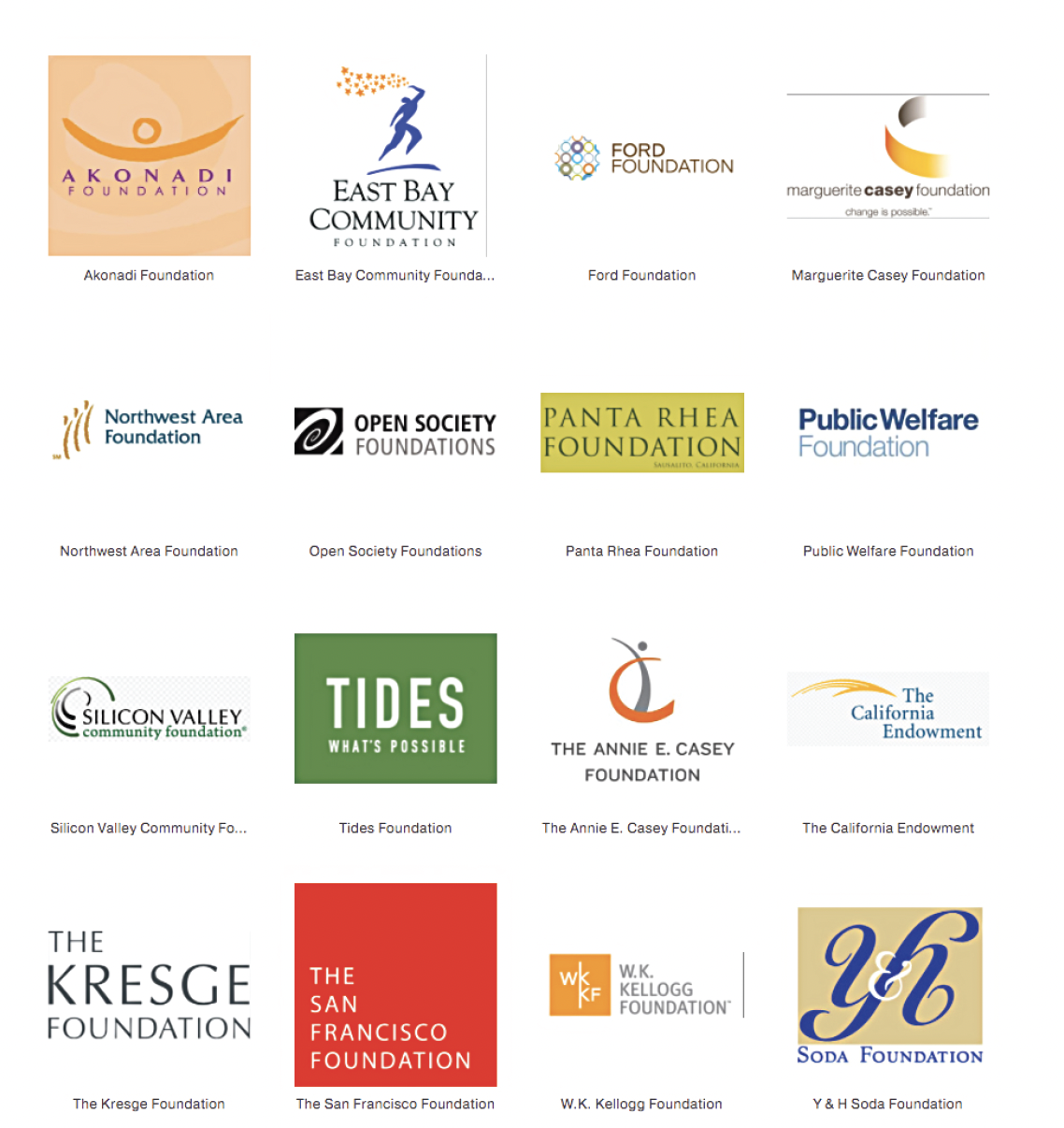
- Akonadi Foundation
- East Bay Communication Foundation
- Ford Foundation
- Margeurite Casey Foundation
- Northwest Area Foundation
- Open Society Foundations
- Panta Rhea Foundation
- Public Welfare Foundation
- Silicon Valley Community Foundation
- The California Endowment
- Tides Foundation
- Annie E. Casey Foundation
- Y & H Soda Foundation
- Kresge Foundation
- San Francisco Foundation
- W. K. Kellogg Foundation


